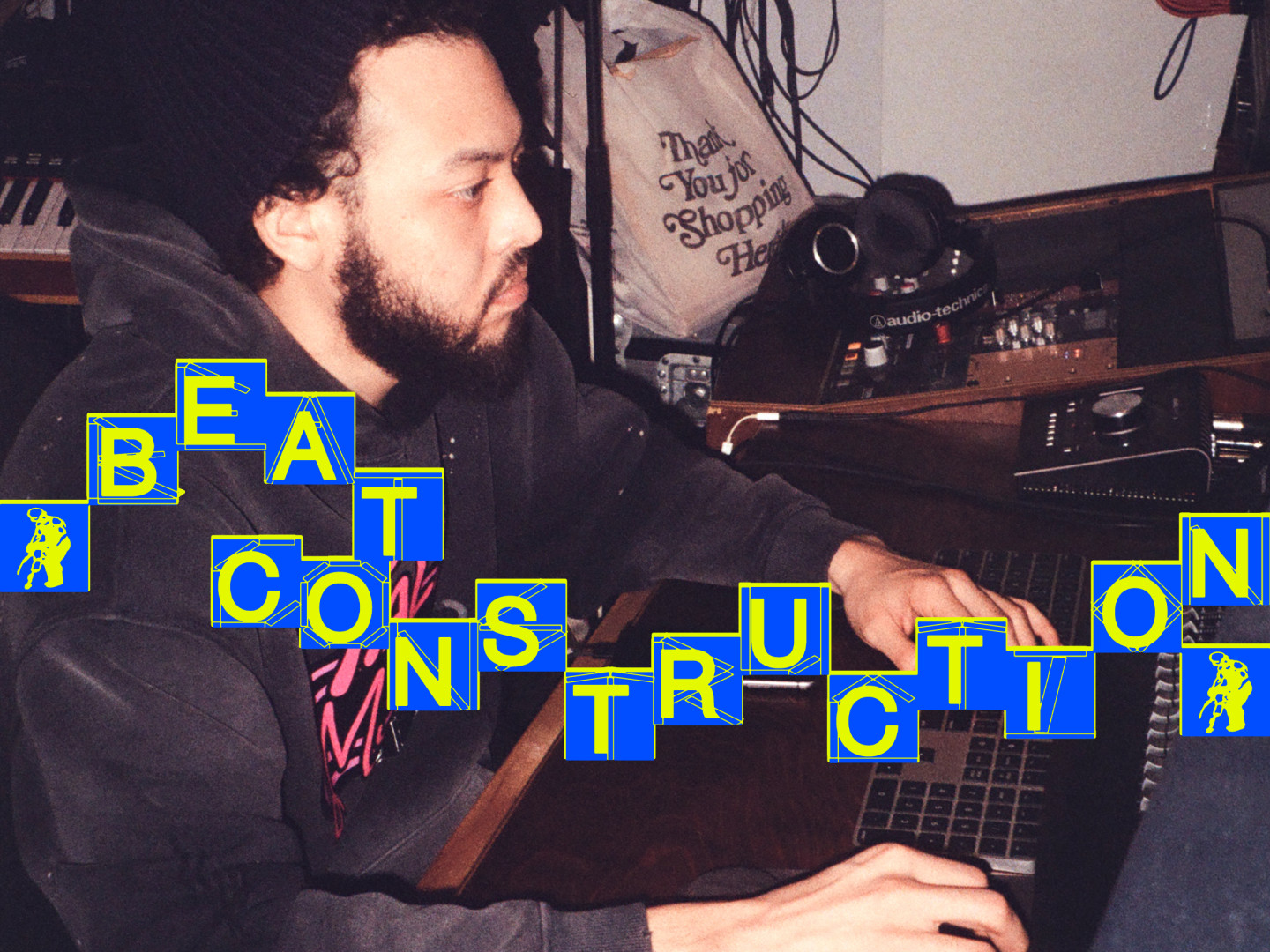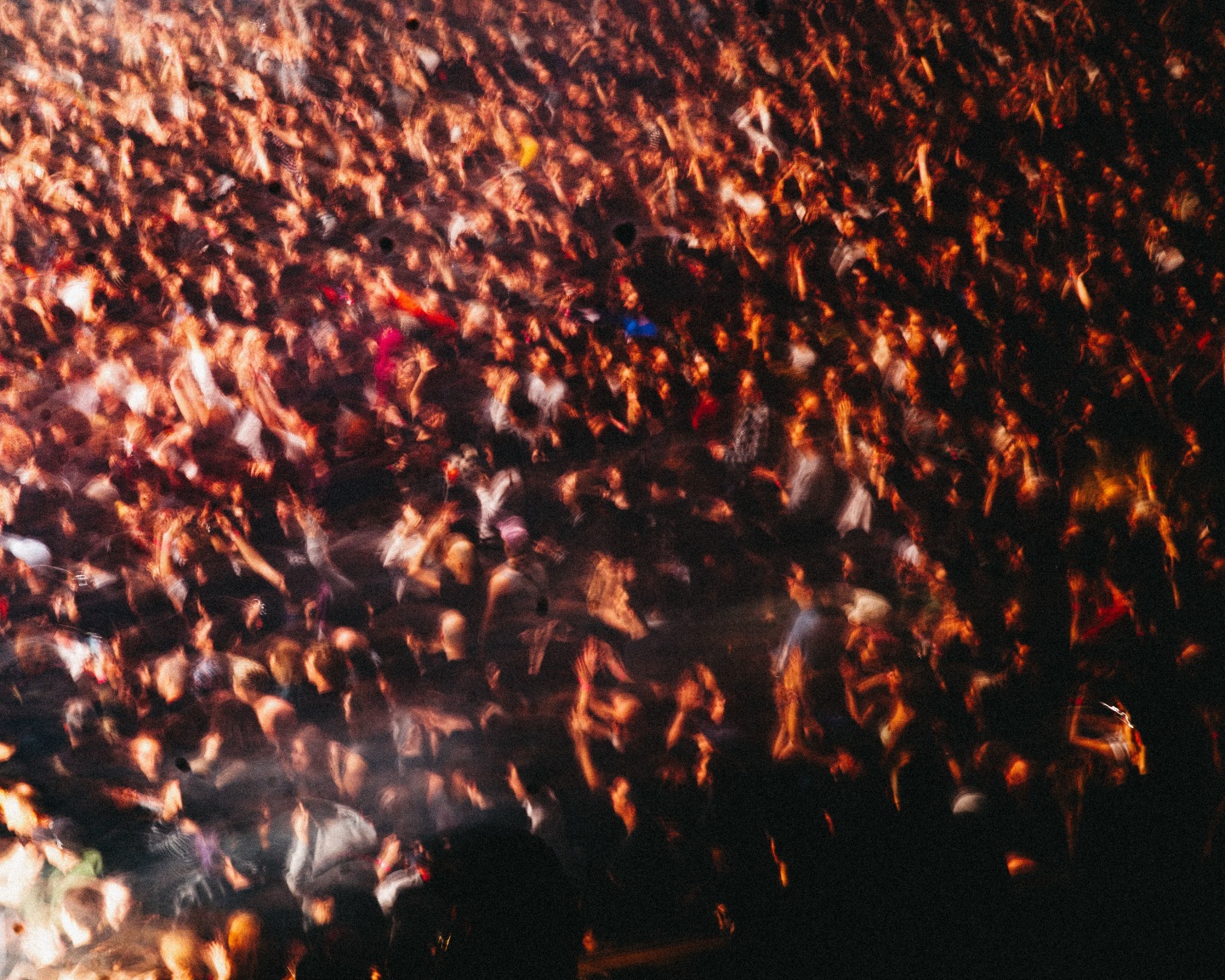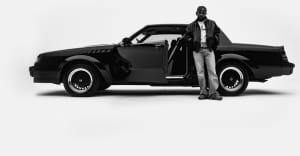The FADER’s longstanding series Beat Construction interviews today’s most crucial producers and their craft.
Laron is posted up by the side of John’s Coffee Donut Shop in Brooklyn, dressed in all black and gently puffing on a joint. The diner isn’t too far from the studio, he tells me, plus it’s open until 3 or 4 a.m. every night. Laron has been coming here since high school; by that time, he’d already been making beats for nearly a decade and become acquainted with Jay Critch, whose mid-2010s ascension was soundtracked in no small part by Laron’s hazily spaced out synths. The duo’s long oeuvre includes the Brooklyn rapper’s breakout “Did It Again,” spaced out loosie “Yoshi” and this year’s Plus Ultra, a collaborative tape spanning roughly two years of the pair’s work.
While his songs with Critch likely rank as his best known, Laron’s production discography is significantly broader than fans of Rich Forever 3 and “$$$” by XXXTentacion and Matt Ox might realize. His instrumentals can be delicately sparse (“Primo” by Navy Blue) or off-kilter and pounding (“Blood Covered Tiles” by Tony Seltzer and Wiki); his sample flips can be chipper (“Snake Charm”) or mystical (“Tony Yayo”).
Laron’s work with MIKE, Niontay, Wiki and Jadasea is more of a piece with childhood inspirations like Madlib and J. Dilla, though Laron tells me as he’s gotten older, he’s begun to see less of a distinction between “new wave” rap music and the traditional sample based approach of DJ Premier and the Alchemist. When I ask about his favorite young producers based on his SoundCloud likes, he rattles off a handful of names, but texts me later to say he missed a few:
Laron’s Top Producers Right Now (Unranked)
FearDorian
Jaden Sounds
Nate Dawg
Ivvys / Stepteam
G Code (he’s locked up rn but we have collabs out there)
Subjxct 5
Tony Seltzer
Honorable mention: Trapmoneybiggie
Art surrounded Laron as a child. He was raised by his parents on the ground floor of a house in Brooklyn, with his father managing Familiar Faces, the hip-hop label most famous for signing Lil Mama. There was another family in the building that Laron’s was close with; his godsisters are into fashion design and fine art, while his godbrother was the one who initially taught him to produce. On top of that, one of Laron’s childhood friends Stro (f.k.a Astro and Astronomical Kid) was the first rapper on X Factor.
“I’ve been making music this whole time,” Laron explains over breakfast (beef sausage, scrambled eggs, home fries, white toast, and an enormous Arnold Palmer). “Sometimes I still feel like a kid a little bit, so it’s weird. But I still have that ability to tap into it as a hobby type thing. I would say the difference is that now I really see the gap. And with what you learn and what I’ve experienced, I really feel capable these days.”
The FADER caught up with Laron at the start of June to talk about evolving with Jay Critch, developing the atmosphere of his songs over time, collaborating with Tony Seltzer, and the making of “2K24 Tour” by MIKE and Niontay.
The FADER: Tell me a little bit about how you started producing.
Laron: I’ve been making beats since I was 6 years old. Growing up I was bouncing around with my dad, and he’s a street dude, so he would have me in studio sessions with them and be out late nights. Not doing all types of crazy shit, but he would have me around the culture. I was super tapped in.
[When] I was like 6 or 7 we had got a Mac, a whole big tower joint. It became the household computer, but my godbrother would use it, and [he’s] the one that taught me how to use GarageBand.
I think of you and Tony [Seltzer] in a similar way, where you guys have a balance between doing high profile stuff with stuff that’s a little bit more of a neighborhood or community or city thing. Earlier you were talking about how music still feels like a hobby for you, but at the same time you’re trying to balance it with intention. How are those impulses balancing for you? Where is that interplay?
People like Tony help that shit go. He is one of my favorite producers ever, since I was in high school. Then meeting bro and learning from [him] just… Simple things, you know? Being open minded, being grounded in what you do type shit. You just really stand 100% on that thing that you’re strong at.
So he’s definitely an example, especially when I had times where I was questioning [after] working with Critch and trying to find some sort of direction. Back then I was guided by something — I feel like our shit was unique, but [I was] trying to expand on it because I also had different inspirations. I had to change the way I approach the music.
Even right before Critch took off and shit, fucking with MIKE, fucking with SLUMS and shit, it’s a whole new atmosphere where everybody’s doing whatever the fuck they want. Just shooting at all cylinders, and there’s not necessarily a formula to what we got going on.
When I got into the industry part, you’re trying to [figure out the formula] in order to get more success. How do you expand on what you build? So especially during that period it’s a lot of trying to figure out what exactly I wanted to do. Shooting shots but also being super self-aware about everything.
When I’m working with people, I’m really trying to make their best music possible, because when you’re working with certain artists you are going against everybody they’ve worked with in a sense. I don’t think it’s competitive, but I am trying to make [music] with a lot of emotions, to where it might be able to resonate: Oh, this is possibly his best work. This is a different tone, something different is happening.
How do you see your work with Critch specifically having evolved over time?
He’s somebody I’m super locked in with, and being in that space allows me to hear a lot of shit. He might be cooking up with Pi’erre Bourne and soaking up the game.
Being able to be in the industry and have that spot where I’m able to get a “Nintendo” [is dope], but it also puts me in a weird space. As a producer, if you’re not making certain things, you might be in limbo or become entourage. So it took a lot of work to distinguish what I got going on. This is not a fluke, or something I’m doing with the bro, it’s really intentional.
What do you feel like are your signatures or your motifs?
With Critch especially it’s probably melodies or just something that’s synthy or cloudy.
I always liked the ambient thing and it’s something that I still do, I just morphed it [into] something that has…
Atmosphere.
Yeah, atmosphere for sure. And then even with the samples, it’s transitioned more into textures and trying to build out soundscapes. Making sure they have more of a grit or feeling so it’s not just straightforward.
Thinking about atmosphere and samples, one of your chops I really love is “2K24 Tour” off Pinball with Niontay and MIKE. I asked Tony about that song and he was like, “that was a Laron chop and he really went crazy with it.” I was curious for your perspective about making that song.
Tony’s super open, so a lot of times when I’m trying to make something crazy I just need that, “oh that’s hard,” just that confirmation.
At that point in our creative career though, we have made hundreds of beats. So by the time we get to “2K24,” I’ll just go through beats I’ve made [that] aren’t strong, but maybe there’s something about the loop.
So that was one of those samples from a beat I had [like that], but the direction I was going in was completely different. It was more straightforward when I sent it to Tony, and then the way he made the beat, he really gave it the space. He didn’t add any extra kicks or anything like that, he really just let it breathe. I thought it was super dope at the time, but when he sent me the track it really connected.
It was one of those ones where you’re not necessarily pressed about it, because sometimes when an artist does a track or even confirms, “Yo this is crazy,” it can make you look at a beat differently. We’re definitely trying to make our best shit, but a lot of the time, just ot be different, it’s just, “Fuck it, yo, let’s do that.” Boom, give him the whole orchestra. And then the way he formatted it too, with the sped up version at the end, changes the energy completely on that song.




